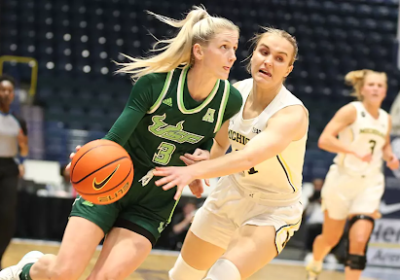‘Husband-hunting’ is not the college goal
Susan Patton, who first made her fame as “Princeton Mom” last year when she wrote into the Daily Princetonian reminding women of their real purpose in college — to pick up a husband — is back at it again, making several bold claims in a recent Wall Street Journal column.
This time Patton stated, “The cornerstone of (a woman’s) future happiness will be the man (she marries).”
While there is nothing wrong with women desiring the “traditional roles” of a wife and mother, searching for a husband should not be the ultimate priority for college women.
Marriage and motherhood can provide women with a deeper, different kind of joy than most things, but happiness is not always rooted in marriage.
Each woman has a unique purpose and some may have been placed on Earth to impact others through their careers, religious beliefs, friendships and so forth.
Not all women are meant for marriage.
If finding a husband is so heavily emphasized by society, it could easily make women who have alternative callings feel like they are living an unfulfilled life.
Furthermore, Patton said, “College is the best place to look for your mate. It is an environment teeming with like-minded, age-appropriate single men with whom you already share many things.”
Indeed, college men are typically driven and relate to a variety of the same challenges, ambitions and changes that college women experience, but college students in general experience a lot of changes.
They are in the process of figuring out who they are, what they believe and where they are headed.
If a woman marries a man while he is still undergoing these vital transitions, she could find in a few years her husband is an entirely different person than who he was when they were engaged.
If a woman is not ready for marriage in her early 20s, Patton advises her to “keep in touch with the men that (she) meet(s) in college, especially the super smart ones.” She then affirms that these men will likely become accomplished and be even more alluring after college.
It may be true that the “smart ones” will continue being extremely successful in their careers, but that should not be the reason for women to keep them on the
sidelines as potential candidates. In doing so, marriage becomes a mode of financial security rather than a genuine unity founded in love.
In a historical context, higher education for women is a relatively new concept.
Women should embrace the opportunity they have been given through the work of previous generations before them and focus on their studies during college, while also incorporating fun. If a woman just so happens to meet her husband in the midst of this, she should consider it a fortunate bonus.
Jamie Sproat is a freshman majoring in secondary education.






